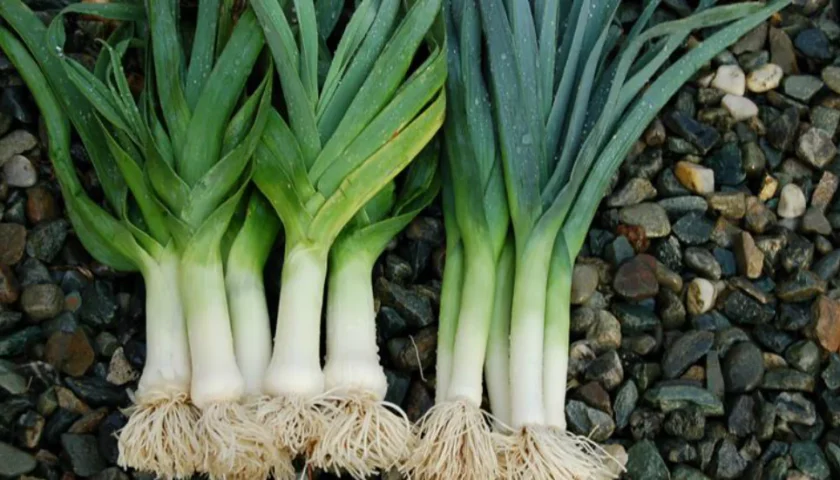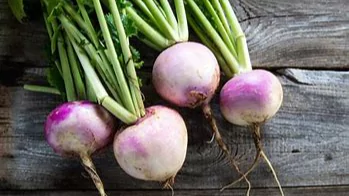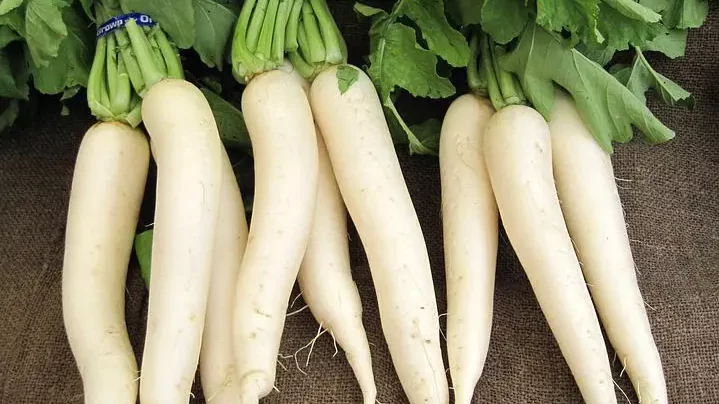About Leeks
Leeks Like onions and other members of the Allium family, leeks are bulbous vegetables with white and green flesh. However, the bulb is not round, but slightly larger than the stem closest to the root. The more compact the bulb, the worse the leek.
Leeks are one of the most expensive types of onions you will find in the market. It depends on the place: in countries where it is widely used, leeks are not expensive. Those who love the taste of leeks and the ease of preparation believe that they are worth a little money.
Leek, (Allium porrum), a biennial plant of the amaryllis family (Amaryllidaceae), grown as a vegetable. Leek is an ancient plant and is native to the Eastern Mediterranean and the Middle East. The plant is related to the onion and has a mild, sweet, onion-like flavor. Leeks are used in European soups and stews, especially as an accompaniment to potatoes, and can be cooked whole like a vegetable.
In the early stages of the plant, long leaves emerge from the stem or compact plate; the strong base of its leaves falls and is well arranged in an almost cylindrical bulb.
The roots of shallow fibrous roots grow from the base of the stem plate. Many gardeners pile soil or mulch around the lower part of the stalk several times during the growing season to prevent chlorophyll production, causing the long white part of the stalk to under the book. If left untreated, second-season leeks produce large clusters of flowers; The fruits are small, black, time, and part.
How to plant leeks
When to plant
Leeks can be planted just around the date of the last spring frost in your area. Young plants can survive light frost and mature plants can withstand severe frosts. To get a jump on the growing season, you can start seeds indoors about 10 to 12 weeks before the expected date of the last spring frost.
In mild climates (usually zone 7 and above), you can also plant in the fall.
Selection of planting sites
Choose a sunny spot with rich, well-drained soil for your leek. Bed and container gardening is also an option if you don’t have enough garden space. Leeks have shallow roots, so be careful when growing other plants nearby. And keep the grass free to avoid competition. For gardeners with limited space, you can plant rooted, fast-growing lettuce among your leeks while they wait to establish.
Space, depth and support
Plant the seeds about 1/4 inch deep and 6 to 8 inches apart. When you plant the seeds, sprinkle the soil around the plant and the first green leaf. The line should be at least one foot. Supportive measures should not be necessary.
Nutrition facts

leeks are an excellent source of vitamin K, folate, vitamin B6, and vitamin C.
Vitamin K is necessary for the formation of prothrombin, a type of protein that plays an essential role in coagulation (clotting), which helps the body to heal from wounds. Vitamins may also play a role in maintaining bone mineral density.
Folate is especially important during pregnancy as a vitamin that helps prevent birth defects and other pregnancy-related problems.
Vitamin B6 has many functions, and is important for brain development, health and metabolism
Finally, vitamin C is an important nutrient that has antioxidant properties that play an important role in the immune system.
Health benefits of leeks
Leeks are high in flavonoids, especially one called kaempferol. Flavonoids are antioxidants and may have anti-inflammatory, anti-diabetic, and anti-cancer properties, among other health benefits. Definitive evidence of the health benefits of leeks will depend on future human studies.
Protect your heart health
Leeks, especially wild ones, are a hearty food because of the high folate content of the plant. This compound is known to help protect blood vessel walls from damage.
With the help of flavonoid kaempferol, found in large leeks, it has been shown that this food reduces the risk of heart attack and disease.
Cancer risk reduction
Plants from the allium family may be associated with a lower risk of certain cancers. Cancers of the prostate, stomach, colon and esophagus are rare in people who eat a lot of garlic, shallots, chives, onions and leeks. Researchers believe that the antioxidants in allium vegetables repair damaged DNA. Many studies have found evidence of a reduced risk of colorectal cancer. A review of 16 studies found that all vegetables in the allium family provide these health benefits.
Helps lower blood pressure
Leeks are rich in potassium. Eating this food regularly has been shown to help lower blood pressure. By improving the contraction of the heart muscle, potassium promotes the circulation of blood, and therefore oxygen, in our body. By dilating blood vessels, the nutrients in many leeks reduce the risk of heart attack and disease.
They are natural diuretics
Among other vegetables such as beets, celery and asparagus, leeks have a great diuretic effect. They are low in sodium, which promotes the elimination of excess water and sodium from your body. By removing toxins and waste from the body, this method can be very beneficial for your kidneys. Natural diuretics can help lower blood pressure and reduce water and salt retention. It also helps with skin conditions like cellulite.


